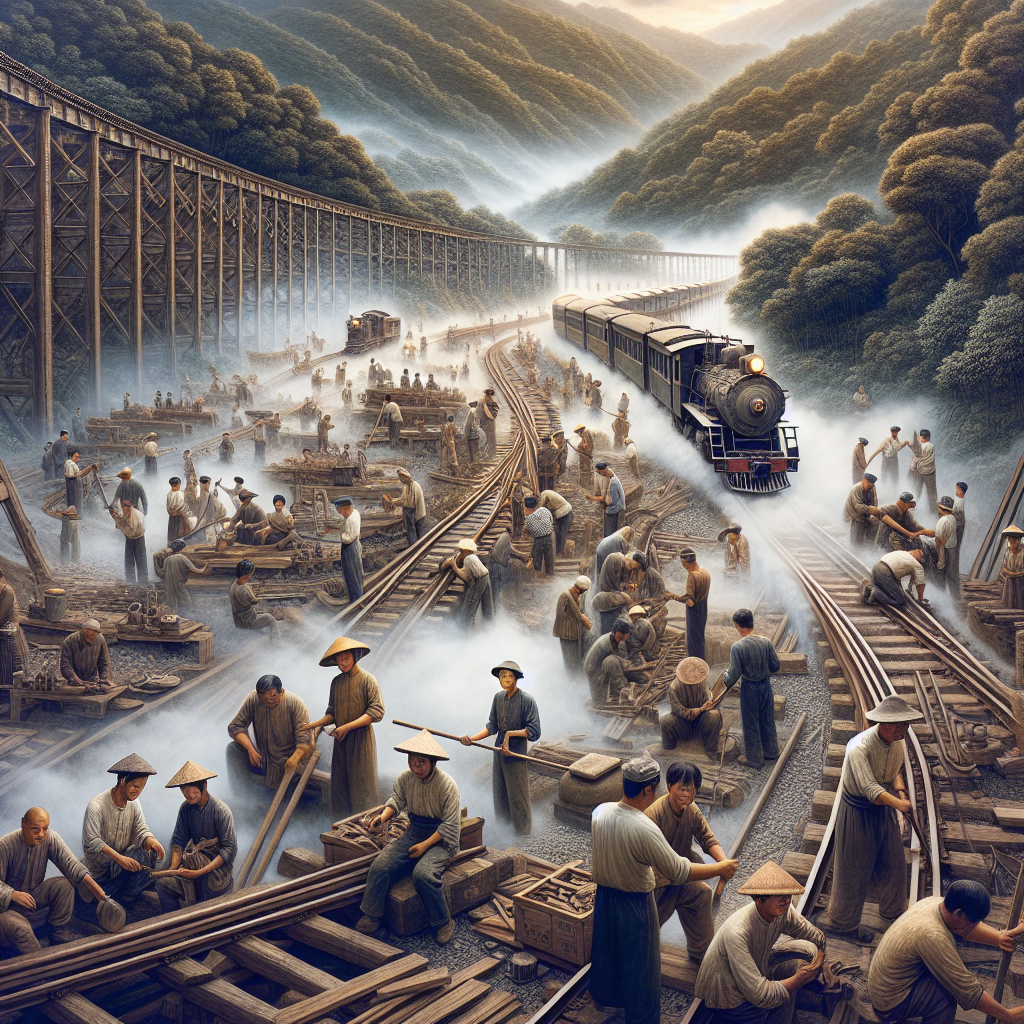Economic Development in Colonized Territories: The Japanese Approach in Taiwan and Korea
The colonization of Taiwan and Korea by Japan before World War II presents a complex historical scenario. Far from being a mere political dominance, this period was characterized by strategic infrastructural and educational advancements, albeit underscored by brutal suppression and control. This analysis delves into the multifaceted effects of Japanese colonization efforts, exploring the dichotomy between oppressive practices and the drive towards economic development in these regions.
The Prelude to Economic Expansion
Before considering the impacts of Japanese colonization, it’s essential to contextualize the period. The Meiji Restoration marked a pivotal shift in Japanese policy and external ambitions. Japan's imperialistic ventures were not solely driven by territorial acquisition but by a desire to emulate and surpass Western colonial powers. This led to the colonization of Taiwan in 1895 and Korea in 1910.
Japanese strategies in these regions were heavily influenced by the need to assert control and integrate the economies of Taiwan and Korea into the larger Japanese empire. The colonial government implemented a series of infrastructural improvements, including the establishment of extensive railway systems which not only facilitated military movements but also boosted trade and agricultural efficiency.
Infrastructure as a Tool of Control and Development
The laying down of train tracks across the colonized landscapes of Taiwan and Korea was one of the most significant infrastructural projects undertaken by Japan. These rail networks were pivotal, for they did not just enhance logistical capabilities but also symbolically represented the penetration of Japanese influence into the everyday lives of the Taiwanese and Korean people.
In Taiwan, the resistance to Japanese rule was considerably less fierce compared to Korea. This relatively smoother transition is reflected in the current attitudes of Taiwanese people towards the Japanese period, which are not as embittered as those found in Korea. The strategic approach of integrating Taiwan economically and infrastructurally into Japan’s fold largely pacified resistance and increased cooperative engagement.
Educational Ventures and Economic Upliftment
Japan’s colonial rule also extended into the realm of education and knowledge dissemination, a vital component of their governance model. While the higher echelons of academic and administrative positions were reserved for Japanese nationals, significant efforts were made to educate the local populace.
This education was not liberal arts but rather focused on practical subjects like agronomy, which directly contributed to improved agricultural outputs. Publications such as technical journals were widespread, aiming to elevate the local knowledge base and align it more closely with modern practices, thus optimizing productivity and supporting Japan’s broader colonial economic interests.
The Double-Edged Sword of Autocratic Governance
Despite the apparent benefits in terms of infrastructure and education, it is imperative to acknowledge the autocratic nature of Japanese rule in both regions. The governance was anything but democratic; it was marked by strict surveillance and control, extending from local police forces to all aspects of administrative life.
In Korea, where resistance was more robust, Japanese strategies were harsher, leading to a legacy of bitterness and resentment that persists. This autocratic control, while effective in maintaining order and implementing economic policies, also stifled political freedom and cultural expression, leading to long-term social and psychological scars.
Long-Term Impacts and Modern Perspectives
The long-term impacts of Japan's colonization are complex. Economically, both Taiwan and Korea benefited from the infrastructural and educational advancements. However, the social and political costs were significant. Today, the narrative around Japanese colonization is polarized; it is seen either as a period of modernization or a painful chapter of oppression.
In contemporary discussions, it is crucial to balance the recognition of economic development with the acknowledgment of the human costs associated with such autocratic colonial practices. Understanding this nuanced history is pivotal for reconciliation and future cooperation in East Asian geopolitics.
For further insights into the broader context of Asian colonial history, resources such as The Asia-Pacific Journal provide extensive scholarly articles and analyses that contextualize these events within the larger framework of regional history.
In conclusion, the Japanese colonization of Taiwan and Korea is a testament to the complex interplay of oppression and development. The infrastructure and educational reforms implemented by Japan had lasting impacts on the economic landscapes of these regions. However, the road to modernization was paved with stringent control and suppression, a reminder of the profound ramifications of colonial rule.
Related News
- The Ripple Effects of Desperation: A Deep Dive into Japan’s Historical Decision and Economic Downfall
- The Cultural Undercurrent in Warfare: Lessons from Japan's Military History
- The Unyielding Spirit: Understanding Japan's Stance in World War II
- Challenges of Nation Building: A Comparative Analysis of Post-War Reconstruction
- An In-depth Look at the Devastating Impact of Conflict: Insights from World War II
